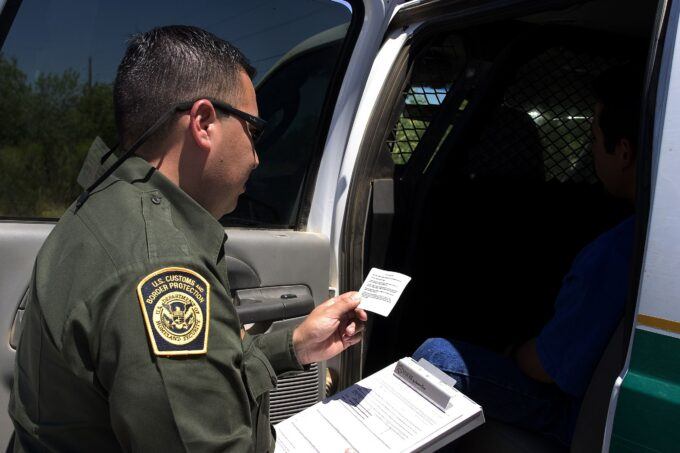
Photograph Source: Gerald L. Nino, CBP, U.S. Dept. of Homeland Security – Public Domain
In 2017, when I was interviewing people at Customs and Border Protection headquarters in Washington, DC, one official told me point-black, “We’re exempted from the Fourth Amendment.” The Border Patrol, according to him, can circumvent the Constitution and conduct unwarranted searches and seizures. I suppose I didn’t hide my look of surprise too well (he said it so authoritatively and casually!), because the officer immediately followed that up with a quick “the Supreme Court ruled that many decades ago.”
On June 8, the U.S. Supreme Court again validated this “exemption” and strengthened it. In Egbert v. Boule the court ruled to protect federal agents, particularly Border Patrol agents, from civil rights lawsuits (by making it much more difficult to do so). Central to the case was a Fourth Amendment claim. U.S. Border Patrol agent Erik Egbert entered innkeeper Robert Boule’s property in Blaine, Washington, without a warrant to check the immigration status of some recently arrived guests. When Boule protested Egbert’s presence, Egbert threw him against a vehicle and then to the ground. In its ruling in favor of Egbert, the Supreme Court wrote that “regulating the conduct of agents at the border has national security implications,” and that there would be a “risk in undermining border security.”
As SCOTUSblog contributing writer Howard Wasserman told NPR, “Considerations of national security and foreign affairs that are endemic to immigration enforcement and immigration issues are always going to make it improper for a damages action to go forward.” As has been the case since 9/11, the broad yet ill-defined notion of national security trumps all else.
But there is a longer history to this, as the CBP official alluded to at the beginning. Geographer Reece Jones, author of the forthcoming Nobody Is Protected: How the Border Patrol Became the Most Dangerous Police Force in the United States, told me that this was “the latest example of the continued evisceration of Fourth Amendment protections. … The Supreme Court had previously ruled that Border Patrol agents needed lower standards of evidence to stop vehicles, could operate permanent checkpoints deep inside the U.S., and could use racial profiling in all of their work. Now, even when citizens are subjected to egregious abuses of authority, there is no mechanism to hold Border Patrol agents accountable.”
“I Feel Like I Have No Civil Rights”
This content originally appeared on CounterPunch.org and was authored by Todd Miller.